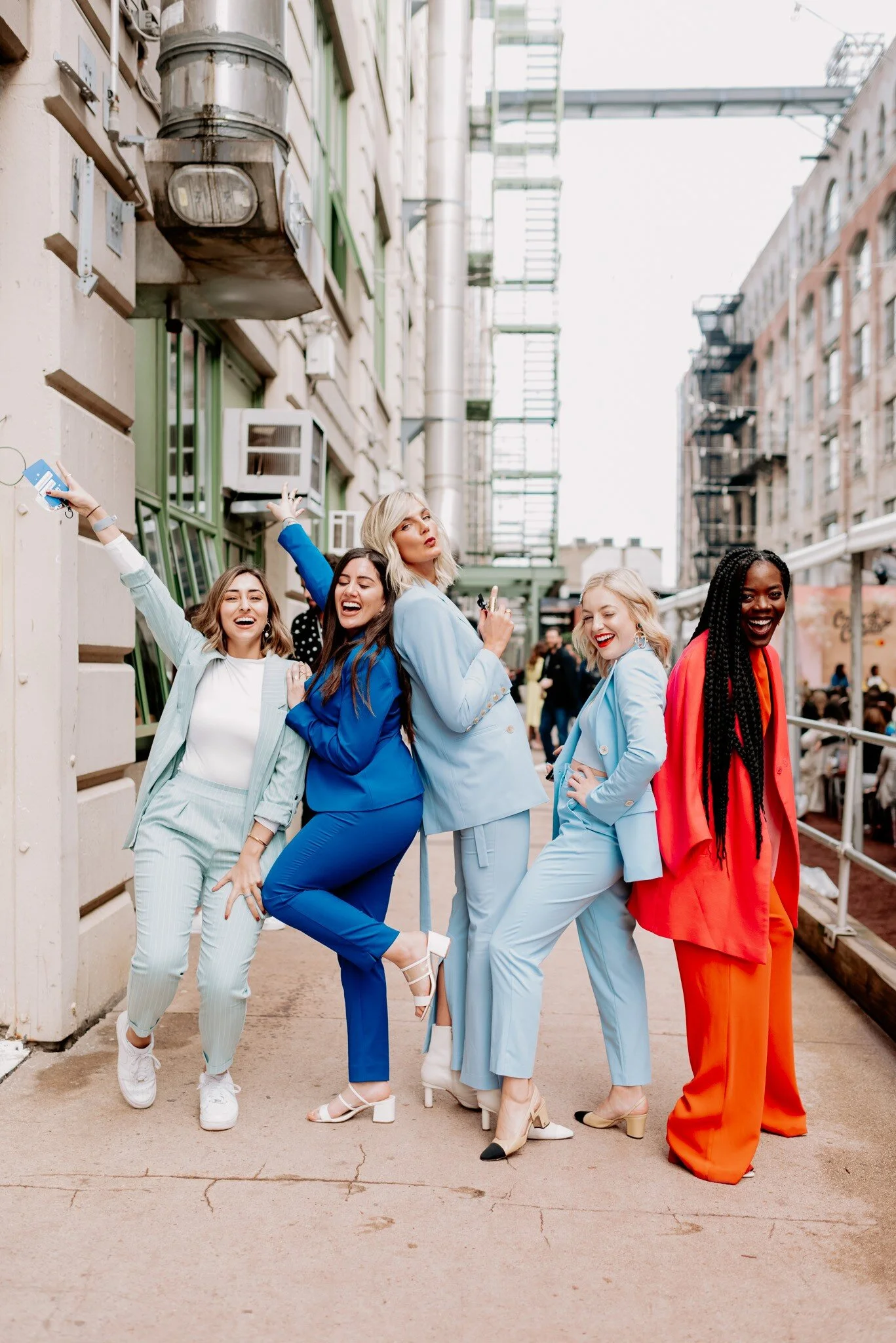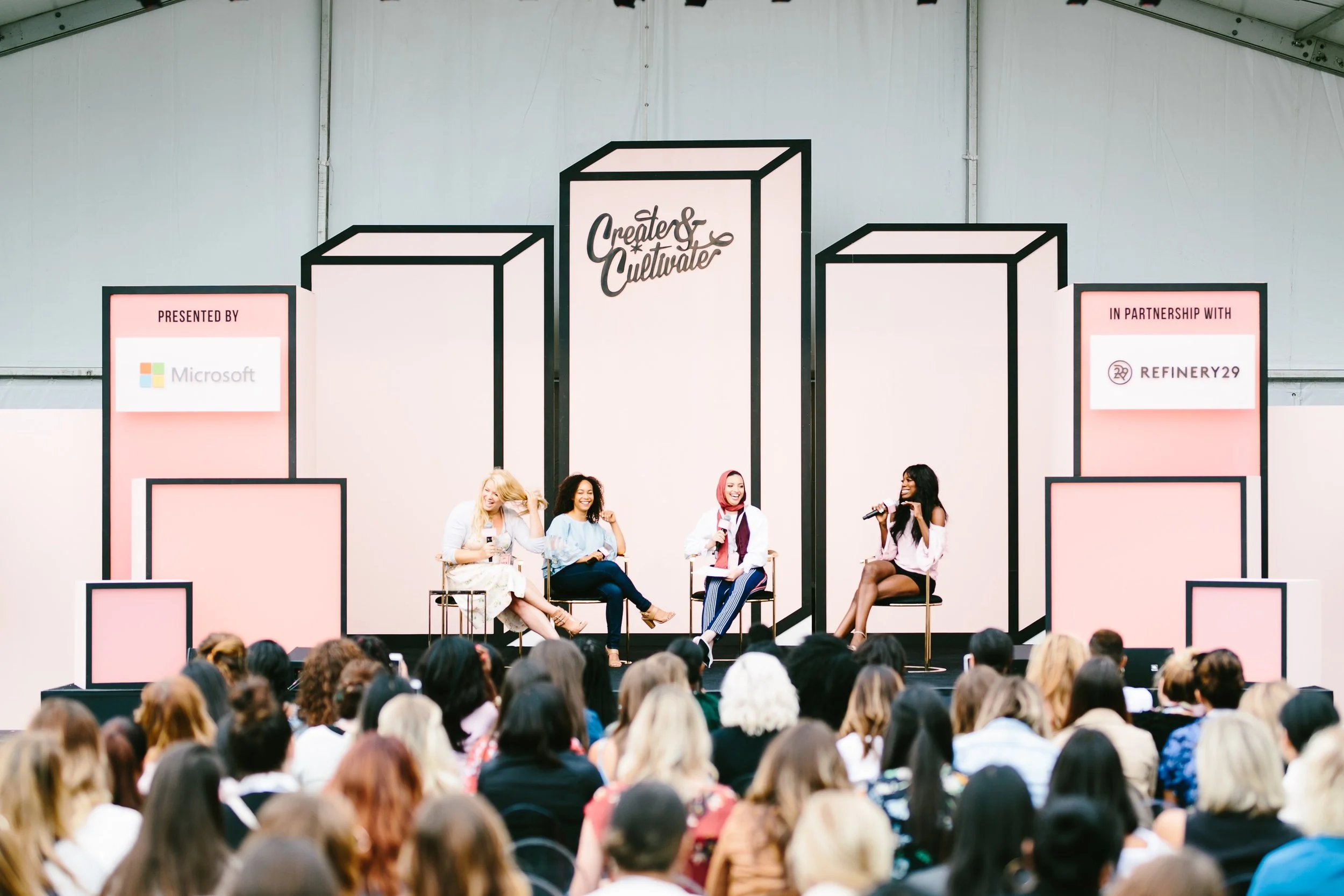How Being Overdressed for an Interview Can Negatively Affect Your Chances of Landing the Job
Make a great first impression.
Photo: Create & Cultivate
Once you schedule an interview, these are just a few of the questions that might be swimming in your head: What if I show up and I’m overdressed? What if I’m underdressed? Will it even make that much of a difference? How bad is it really to be overdressed for an interview?
According to data released in the Job Interview Anxiety Survey, 92% of employed Americans get stressed out about job interviews, but it’s not just the actual interview that stresses people out. Figuring out what to wear for an interview can often become just as stress-inducing as wondering what questions they will ask you.
With the rise of startups and tech companies with laid-back company cultures, figuring out what to wear for your next interview has become more confusing than ever, but these tips will help you navigate the process with ease.
How bad is it to be overdressed for an interview?
Really bad.
If you’re interviewing at a company known for its laid-back dress code and company culture, showing up to your interview in a suit will show that you haven’t done your research on the company and the environment.
Even worse, showing up in a suit could mean that you did research the company and didn’t care about the dress code and rules.
What can you do to ensure that you’re properly dressed?
Research the company to figure out what the company culture is like. Company culture often dictates the dress code and how formal or casual people will dress. Use websites like Glassdoor to your advantage. These platforms allow users to rate and comment on companies, giving you inside knowledge about the company culture, and what it’s really like to work there. Often people will discuss dress code and the general vibe of the office.
Another option is to search for employees on LinkedIn. Observe what employees are wearing in their LinkedIn profile photos to get a better sense of the daily dress code.
Finally, if all else fails, pick up the phone and ask someone about the company’s dress code. This is something so simple, yet almost no one does this. If you want to make sure that you won’t be overdressed for an interview, simply pick up the phone and call the front desk or a recruiter that you’re working with.
If the dress code is really casual, stick with the guidelines, but ensure that you look put together and ready for work.
This is the most important thing to remember when you’re figuring out what to wear for an interview. I always suggest being a step above the dress code, but if you do decide that it would be in your best interest to come completely casual, just make sure that you look put together. Regardless of whether or not the dress code is super casual, you do not want to look like you just rolled out of bed. You’re still interviewing for a job.
If you do decide to go with jeans, make sure they are dark wash jeans without any rips or tears. Similarly, if you opt for a T-shirt, make sure that it is clean, plain without graphics or logos, and wrinkle-free. If you don’t like to iron, (I hate ironing!) invest in a mini steamer. It will change your life and make it super simple to get the wrinkles out of any of your clothes.
How bad is it to be overdressed for an interview? Depending on the company it could be detrimental and could be the reason why you don’t get the job. Showing up completely overdressed suggests that you didn’t research the company and have not paid any attention to the company culture.
Employers want to ensure that they hire employees who will fit in with the general office vibe, and showing up to an interview overdressed can be a major red flag. When you’re determining what to wear for your next interview, do some research on the company dress code and company culture, and dress accordingly. With the rise of business casual and completely casual dress codes, figuring out what to wear for your next interview can be tricky, however, if you follow these simple steps, you’ll be good to go.
Good luck!
About the author: A native San Franciscan, Michele Lando is a certified professional résumé writer and the founder of writestylesonline.com. She has a passion for helping others present the best version of themselves, both on paper and in person, and works to polish an individual’s application package and personal style. Aiming to help create a perfect personal branding package, Write Styles presents tips to enhance your résumé, style, and boost your confidence.
Love this story? Pin the below graphic to your Pinterest board.
This story was originally published on September 21, 2018, and has since been updated.
MORE ON THE BLOG
Being Interviewed? Here Is the Only Piece of Advice You Need
Ok.. so it's three pieces of advice. We're givers.
photo credit: Smith House Photography
So. It's finally happened. The day has come when an editor or blogger has reached out to YOU because they want to profile you/your business/your brain on their outlet.
Has the panic set in yet? While there is plenty of advice we could dole out-- be AUTHENTIC ( are you sick of that word yet?), be honest, be prepared, ask for the questions in advance so you can prep, know your audience, know your interviewer and check out their past work-- the list goes on. And while most of that advice matters, we're sharing our top three picks.
1. Contrary to what you just read-- Don't ask for the questions in advance.
Does that scare you? It should. Be nervous. Revel in nervous. The best content comes from a place of discomfort. And as such, the best interviews aren't prepared. If you're accepting the interview in the first place, you should have trust that you're in good interviewer hands. But pre-planned answers and media training. You know your work. You need to trust in yourself as well. Actress Zoey Deutch once told us, "I don't know if media trained Zoey is a role I want to play." And asking for questions in advance is just that-- you playing a role.
2. Do it over the phone or in person.
Everyone has gotten pretty lazy when it comes to the interview. In part, the email Q&A is the fault of the content churn and burn-- you can't produce multiple in-person interviews per day. Transcription is time consuming. It's much easier to send things via email and have the subject do the work for you. Everyone is guilty of this because there isn't enough time. TIME YOU DEVIL.
But WHEN and IF possible always ask to do it over the phone or in-person. Your responses and your personality will shine through in the piece. That's what you want the public to see.
And if you're the interviewer, or green to this whole profession and feel more comfortable conducting an interview over email, today's the day: it's time to step out of your comfort zone. That's where the good content is.
"Today's the day: It's time to get out of your comfort zone."
Tweet this.
3. Learn how to speak in Tweets.
Sure, Twitter may have upped the character limit to 280 for some users, (and man, people don't like it) but you still need to talk in Tweets. Call them "sound bites" or "quotables," just don't call them late for dinner! But really, if you want your interview to be shared (which, is the goal for most) you need to make sure that it is sharable. That doesn't mean dumbing down your language. Brevity is the soul of wit. Wit gets Tweeted. Wit gets shared.
When we get nervous we tend to ramble. Rambling lives at the corner of no one is reading and high bounce rate. Don't overthink sounding smart. Sound human. Be human. (Goes back to not asking for questions in advance.)
Many women we've spoken to are masters at this. Kristen Bell. Sophia Bush. Yvonne Orji.
Examples include:
"Don’t let your feelings of self-worth come from detached clicks."
"Let social media be fun. Don’t let it be important."
"I stand my ground and do my thing as me. I can go toe-to-toe with the next guy."
But they're famous you say. People pay attention to them no matter what. Did you ever think people started paying attention because they knew this was key to mastering the interview?
Think about it.














